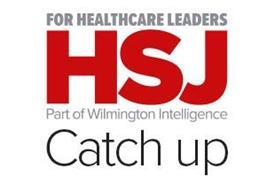NHS England attempted to keep secret the loss of a contract dispute with a teaching hospital trust, fearing it would encourage other challenges, HSJ can reveal.
The national body has refused to publicly disclose the names of two organisations that took it through an arbitration process over their 2017-18 and 2018-19 specialised services contracts.
However, internal emails seen by HSJ reveal Brighton and Sussex University Hospitals Trust won a challenge against the national commissioning body over £6m in payments. An NHS England email said Brighton’s challenge was “essentially that our QIPP [savings] schemes were not sufficiently well worked up”.
In one of the emails, an NHS England senior communications consultant, writing to a solicitor, said: “There is a risk that if other trusts find out that the arbitrator found in favour of Brighton’s challenge then it could lead to other trusts to be more ready to go to arbitration.”
For the first time, commissioners and trusts negotiated a contract for two financial years at the end of 2017, covering 2017-18 and 2018-19.
NHS England was keen to present this as a success after the provider rebellion against the 2015-16 tariff, which created a two-tier system with some trusts on the new tariff and others staying on their previous arrangements.
In an email from an NHS England press officer to Niall Brannigan, a senior litigation solicitor, the press officer asked if there were legal grounds they could use to not provide information on the arbitrations.
The email on 25 May said: “NHS England approached HSJ to publish a positive news story on the success of the specialised commissioning funding round and HSJ asked at the time if any trusts had gone to arbitration. At the time, two trusts had been submitted to [the arbitration] panel but we advised the journalist that we could not disclose details at that time as the arbitration hearing was yet to be held.”
The email added that now the arbitration was over they “wanted to ask if we could go back and tell them that due to commercial confidentiality, we couldn’t comment on which trusts were in arbitration – is this legally accurate or would be have to release the names?”
The emails show the press officer’s query was sent to NHS England’s senior lead for the NHS standard contract Alastair Hill. He said: “Unless we are asked under the Freedom of Information Act, I think it would be reasonable for us to maintain a line that we do not comment on contract arbitrations.”
But he added that if they were to receive an FOI request “the presumption in favour of releasing the information would be very strong. Especially perhaps in relation to a dispute between two NHS bodies as in this case. It’s not immediately clear to me which organisations would suffer true negative consequences (as opposed to possible inconvenience!) as a result of the information being made public.”
Despite the admission there were grounds to release the information, NHS England’s official response was to withhold it.
An NHS England spokesman said in an email to HSJ earlier this week: “We have taken advice from the legal and contracts team and I’m afraid the steer is that we won’t be releasing this information.
“The decision has been taken that we do not wish to comment in public on the outcome of arbitrations. There are also wider commercial confidentiality factors we need to factor in.”
It is not known which other trust took NHS England to arbitration, over which contract and what the result was.
The technical guidance document for the 2017-19 contracting round said: “Resorting to arbitration is a sign that the parties have failed in their duty to work together effectively.”
NHS England and NHS Improvement decide the size of the charge they levy on commissioners and providers to enter a challenge and the panel can award that cost to either party. It is not known what charge was levied on NHS England and Brighton, or where the panel awarded the costs.
The guidance said foundation trusts are not obliged to enter the arbitration process and contract disputes with them are ultimately enforceable in court.
Source
Emails seen by HSJ
Source date
May-July 2017


























2 Readers' comments